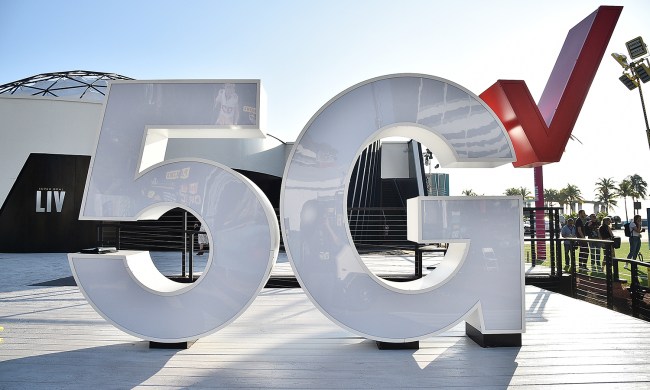
Verizon sales associates should be careful about who they try to upsell. When Dan Rayburn, a streaming video analyst, went to renew his Verizon FiOS internet service, he was recommended to upgrade his service to 75 Mbps because his 50 Mbps service wouldn’t provide the smoothest Netflix experience. It’s a ridiculous claim that Rayburn was in a unique position to dispute.
While most consumers would take Verizon’s word at face value, Rayburn knew that upgrading his service simply couldn’t change his Netflix speed. The average Netflix streaming speed on Verizon’s FiOS service tops out at 3.5 Mbps, a clip better than all other major ISPs according to Netflix’s own Speed Index tables, but a far cry below 50 (or 75) Mbps. After Rayburn explained this to Verizon sales reps, they argued that more bandwidth is needed given the demands of multiple users in a household.
Rayburn tested out the claim with a different, extremely high volume streaming scenario: during HBO’s Game of Thrones Season 5 premiere, Rayburn had ten separate simultaneous streams via HBO Now and Sling TV. All of the streams had perfect quality and he had used only 29 Mbps of the 50 Mbps connection.
“So even if I had a household of ten people, all streaming at the same time, going from 50 Mbps to 75 Mbps would not have given me any better video streaming quality over what I already have,” he said in a blog post. “Verizon is simply using the average consumer’s lack of knowledge of bitrates and streaming technology to scare them into thinking they need a higher tiered package than they really do.”
This wasn’t just an isolated incident from one zealous sales rep, either. Rayburn claims he received the same pitch from three sales reps via phone, and one online.
Rayburn, who is a streaming media consultant at market research firm Frost & Sullivan, has a pretty balanced record when it comes to the topic of streaming video issues. The analyst defended Verizon last year during the company’s war of words with Netflix over sluggish streams, and instead blamed Netflix for the streaming issues over Verizon’s network. The issue has since dramatically improved after Netflix agreed to pay Verizon for direct access to its pipelines, similar to deals Netflix made with Comcast, and others.
When Ars Technica asked Verizon if sales representatives are instructed to tell customers that the 75 Mbps service streams video faster than 50 Mbps, a spokesperson said the company reviewed “tens of thousands of calls to make sure that’s not the case and it’s not.”
That’s difficult to believe given Rayburn’s experience. In any event, like buying a new car, the example is an important reminder to do your homework, lest you find your self shelling out extra cash for unnecessary upgrades.


